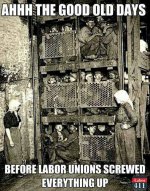- Joined
- Sep 14, 2009
- Messages
- 19,897
- Points
- 3,411
I worked for the CEGB pre nationalisation and later for British Gas soon after they had to divest Transco. Despite the hassle of finding the best energy deal in today's market we still have things very much better than they were back then.
The CEGB was well run compared to many nationalised industries, but the waste and management stupidity were epic.
I wrote a list, but it looked so negative it's now deleted.
OK just one - My workplace had four 120MW reheat units. There were some considerable design faults but they worked well enough until they started to be used during daytime only. They could not go a week without one of the four units popping a boiler tube which meant shut down for 3 days for repairs. My boss said it has to be a steam flow issue that only happens at low loads like daily startups. We fitted a much bigger steam blown down valve and the tube leaks cleared up. Senior management had put up with it for at least 10 years and done nothing.
There were many more major and less major problems either aggravated by management inaction or caused by managerial actions that had been given no thought.
The CEGB was well run compared to many nationalised industries, but the waste and management stupidity were epic.
I wrote a list, but it looked so negative it's now deleted.
OK just one - My workplace had four 120MW reheat units. There were some considerable design faults but they worked well enough until they started to be used during daytime only. They could not go a week without one of the four units popping a boiler tube which meant shut down for 3 days for repairs. My boss said it has to be a steam flow issue that only happens at low loads like daily startups. We fitted a much bigger steam blown down valve and the tube leaks cleared up. Senior management had put up with it for at least 10 years and done nothing.
There were many more major and less major problems either aggravated by management inaction or caused by managerial actions that had been given no thought.


